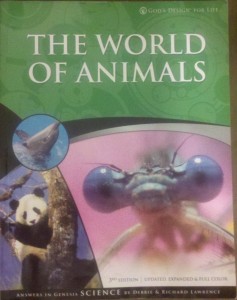Feb 22 2012 38 mins
 One of the most difficult decisions I face in homeschooling is choosing a curriculum among the abundance of choices available. Ironically, it’s also one of the major “benefits” I see that Homeschooling offers!
One of the most difficult decisions I face in homeschooling is choosing a curriculum among the abundance of choices available. Ironically, it’s also one of the major “benefits” I see that Homeschooling offers!
It is difficult for a few reasons. One is that I personally do best being able to put my hands on it to view the curriculum in it’s entirety (rather than viewing a lesson or unit that is available to view online). Another reason is that I HATE wasting money! Finally, there are many review websites and blogs out there but I found some of the reviews to be written by the publishers of the curriculum (I didn’t want a sales pitch) and the other reviews would be all over the place. I realize that no one curriculum will be a perfect fit for everyone but reading some raving reviews right next to some obviously disgruntled reviews for the same curriculum was frustrating and confusing for me.
I am going to do my best to give a factual review of the God’s Design for Science series. First let’s start with some curriculum details.
This series is written by Debbie & Richard Lawrence and published by Answers in Genesis. It is divided into 4 theme areas: Chemistry and Ecology (3-8th), Physical World (3-8th), Heaven and Earth (1-8th), and Life (1-8th). Each of these themes has three individual books that goes into more specific content. For example the God’s Design for Life has “World of Plants”, “World of Animals”, and “Human Body”. It takes about a year to complete the three books so the whole curriculum series would be four years of science.
Advantages:
- The biggest advantage, in my opinion, is that it is multi grade level in the SAME book. EACH lesson is written with a “beginner” section that fits K-2nd really well, a section for 3-8th, and some “challenge” sections designed for 6-8th but my third grader can often complete. Included are “Special Features” articles which are fun facts or biographies of scientists who have contributed to the subject.
- It is creation based (meaning it is completely evolution theory free) and examples of God’s design of our world is woven throughout the curriculum.
- Comprehension questions are included for every level and in every lesson (the teacher’s book has the answers).
- There are added activities for each lesson like experiments, worksheets, research projects, and some charades/art. Any worksheets and tests are on the CD ROM that is included with each individual book.
- MOST activities do not require much prep time or materials (and the materials they do require are ones you would have on hand or from a grocery store).
- It lends well to pulling in additional picture books or activities.
- The cost is pretty low and you have the option of buying per book, per theme series, or the whole series.
Disadvantages
- The unit tests cover content for all the grade levels. If your child doesn’t do the “challenge” sections then there will be questions that he/she will not know on the tests. Likewise, the tests are very difficult for the K-2nd “beginner” level as much of the content would be foreign to them.
- The content of each lesson is light (at least for the “World of Animals” book but that may not be the case for “Properties of Atoms and Molecules” book!)
- If you want a science curriculum that is highly WORKSHEET OR EXPERIMENT based then this NOT for you!
For our family, the advantages outweigh the disadvantages. I realize that no curriculum is perfect. You may however, want to check God’s Design out!
Also mentioned in this episode was the Teach Them Diligently Convention for Christian homeschoolers. We highly recommend this convention if you are going to be anywhere near the upstate of South Carolina between March 15-17.
Subscribe:
You can subscribe to this podcast via iTunes and/or RSS below:


